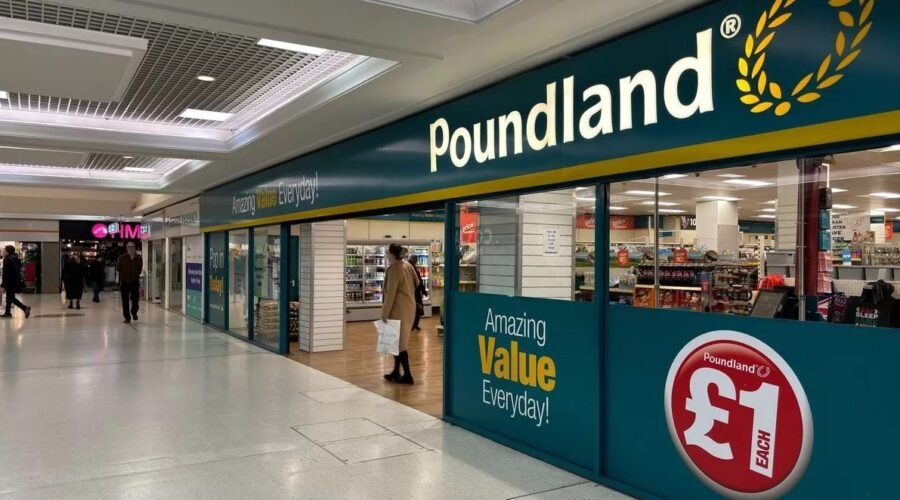Poundland, a staple on the UK high street, is facing one of its most challenging periods. The discount retailer, known for its affordable everyday goods, is now at risk of closing up to 200 stores across the country. This move is part of a comprehensive financial overhaul aimed at securing the brand’s future and protecting its workforce of approximately 16,000 employees.
The company currently operates more than 800 stores in the UK and Ireland. However, shifting consumer habits, rising operational costs, and increased competition have forced Poundland to reconsider its business model and store footprint.
Why Are Poundland Stores Closing?
The decision to close a significant number of stores stems from ongoing financial struggles. Poundland’s parent company, Pepco Group, put the retailer up for sale in March. Since then, the company has faced “highly challenging trading conditions,” leading to a 6.5% drop in sales over a six-month period ending in March 2025.
Pepco Group recently downgraded Poundland’s full-year profit forecast. The retailer is now expected to deliver an underlying EBITDA between £0m and £16.8m, a sharp decline from earlier projections of up to £59m. These financial pressures have made it difficult to keep underperforming stores open.
The Restructuring Plan and Store Closures
Poundland’s turnaround plan is ambitious. Between 150 and 200 loss-making stores have been earmarked for closure. Additionally, the company is seeking rent reductions at up to 500 more locations, with proposed cuts ranging from 10% to 50%. This strategy aims to reduce costs and improve profitability at remaining sites.
The restructuring proposals require approval from a judge, as they involve exiting lease agreements through a court-sanctioned process. If approved, the plan would allow Poundland to focus on its most profitable stores and streamline its operations.
Impact on Employees and Communities
The potential closures put thousands of jobs at risk. Poundland employs around 16,000 people, many of whom work in stores that serve as vital community hubs. The uncertainty has caused concern among staff and customers alike.
A spokesperson for Poundland described the closures as “sad” but necessary, citing the inability to agree on terms needed to keep certain shops open. The company has promised to support affected employees throughout the transition.
The Sale of Poundland and Future Prospects
Poundland’s future now hinges on the outcome of its sale. The auction process has narrowed to two distressed investors, Hilco and Gordon Brothers. The new owner will inherit the turnaround plan and is expected to inject between £70 million and £100 million to stabilise the business.
Industry insiders believe that the next owner will adopt an aggressive approach to restructuring. This could mean more store closures and further changes to the company’s strategy.
The Changing Retail Landscape
Poundland’s struggles reflect broader challenges facing UK high street retailers. Tax increases, rising costs, and changing shopping habits have made it harder for traditional chains to survive. Other retailers, such as Lakeland and The Original Factory Shop, have also faced sales or restructuring in recent months.
Despite these difficulties, Poundland remains a strong brand that serves millions of customers each week. The company’s leadership is focused on returning to its core strengths and simplifying its pricing and product offerings.
Stores Already Closed and Those at Risk
Several Poundland stores have already closed in 2024 and 2025. Locations such as Clapham Junction Station in London, Belle Vale Shopping Centre in Liverpool, and Brackla in Wales have shut their doors. More closures are expected as the restructuring plan moves forward.
The full list of affected stores is available on Poundland’s website, and the company continues to update customers as new decisions are made.
What Lies Ahead for Poundland?
As Poundland navigates this turbulent period, the focus remains on survival and adaptation. The retailer is seeking to renegotiate rents, close unprofitable stores, and attract new investment to secure its future. The outcome of the ongoing sale will determine the next steps for the brand and its employees.
Poundland’s story is a reminder of the challenges facing budget retailers in today’s economic climate. The company’s efforts to restructure and reinvent itself will shape its place on the UK high street for years to come.

